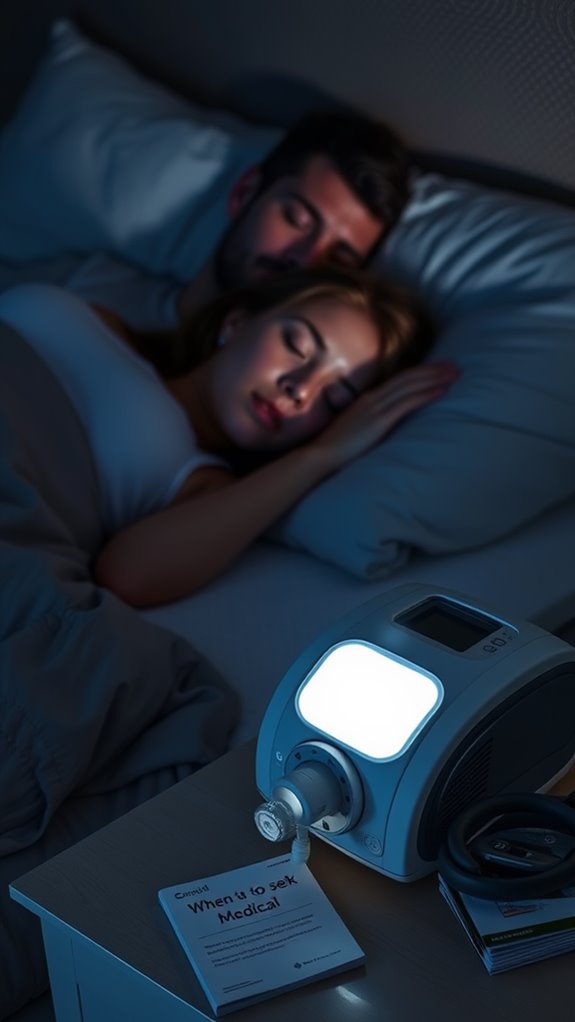How to Stop Snoring While Sleeping for Deeper Sleep
My sister Sarah’s snoring was legendary in our family – so loud that her college roommate once recorded it and played it at a party, claiming it was a chainsaw soundtrack. As a sleep consultant, I couldn’t stand by and watch her struggle anymore, especially after her husband started camping out on the couch.
Over morning coffee, she finally broke down and asked for my help. “I’ve tried everything,” she sighed, holding up a shopping bag full of nose strips and throat sprays. That’s when I shared all my professional tricks – from the perfect pillow positioning to the breathing exercises I’d learned from years of helping clients with similar issues.
Two weeks later, her husband moved back to their bedroom, and Sarah couldn’t stop thanking me. Now, I’m sharing these same solutions that helped my sister reclaim her peaceful nights – and her marriage.
What Causes Snoring?

When you think about snoring, you might picture a peaceful night suddenly interrupted by a chainsaw symphony—yikes!
Snoring happens when airflow’s blocked, often due to nasal congestion or structural issues in the airway. Factors like age, body weight, and even alcohol consumption can relax throat muscles, worsening snoring.
Plus, your sleep position matters; sleeping on your back can make things even louder!
How to Stop Snoring While Sleeping

So, you’re tired of sounding like a chainsaw at night?
Don’t worry, I’ve got some handy tips to help you kick that snoring habit to the curb!
Let’s explore how adjusting your sleep position, managing nasal congestion, and maybe even losing a few pounds can lead to some peaceful nights for both you and your bed partner.
Adjust Your Sleep Position
If you’ve ever woken up to the sound of your own snoring—or worse, had a loved one nudge you awake because of it—you know it’s time to adjust your sleep position.
Try side-sleeping to avoid airway obstruction. A body pillow helps, and taping a tennis ball to your back can keep you from rolling over.
Elevate the head of the bed, and keep experimenting for optimal posture!
Manage Nasal Congestion
Managing nasal congestion is crucial for keeping those snore sounds at bay, especially if you want to avoid waking up the entire household—or worse, your neighbors!
I’ve found that using saline sprays or decongestants can really help clear my nasal passages. A hot shower or steam inhalation works wonders too!
And don’t forget to stay hydrated to keep everything flowing smoothly!
Lose Weight if Necessary
While it might seem unfair that those extra pounds can turn you into a nighttime symphony of snores, there’s good news—losing weight could be your ticket to peaceful slumber. A healthy diet and regular exercise can improve your body mass index, snoring intensity, and sleep quality. If you’re struggling, your healthcare provider can help with weight management strategies tailored to you! Additionally, shedding excess weight can enhance immune function, which may further reduce your snoring issues.
| Weight Category | Body Mass Index (BMI) | Snoring Likelihood |
|---|---|---|
| Underweight | < 18.5 | Low |
| Normal | 18.5 – 24.9 | Moderate |
| Overweight | 25 – 29.9 | High |
| Obese | ≥ 30 | Very High |
Avoid Alcohol and Sedatives
When it comes to snoring, one sneaky culprit that often gets overlooked is that glass of wine or those relaxing pills you might think help you unwind.
Alcohol and sedatives relax your throat muscles, making snoring more likely and your sleep quality suffer.
If you want better muscle tone and fewer sleep disturbances, skipping these before bed can really improve airflow and keep you non-snoring!
Practice Good Sleep Hygiene
- Stick to a consistent sleep schedule.
- Create a calming bedtime routine.
- Avoid stimulating activities before bed.
These steps will enhance sleep quality and help reduce snoring! Additionally, establishing a consistent sleep routine is crucial for maintaining overall health and improving sleep quality.
When to Seek Medical Help

Ever wondered whether your snoring is just a quirky nighttime habit or something that might need a doctor’s attention?
If you’re gasping, choking, or waking up with headaches, it’s time to consult healthcare providers.
Persistent loud snoring could signal obstructive sleep apnea or other underlying health conditions. Untreated sleep apnea can lead to serious health issues such as hypertension and cardiovascular diseases.
Early intervention can really boost your quality of life—don’t let snoring steal your Zzzs!
Frequently Asked Questions
How to Stop Snoring Immediately While Sleeping?
I’ve tried several quick fixes for snoring. Sleeping on my side helped a lot, and using nasal strips improved my airflow. Avoiding alcohol before bed made a noticeable difference in my snoring too.
What Causes Snoring While Sleeping?
I’ve learned that snoring happens when airflow’s blocked during sleep, often due to thickened soft palates or excess weight. Age, alcohol, and nasal congestion can make it worse, creating those annoying sounds.
Can Snoring Be Cured Naturally?
Absolutely, I’ve found that natural remedies like losing weight, sleeping on my side, and staying hydrated can really help. I’ve even tried throat exercises, and they’ve made a noticeable difference in my snoring.
How to Stop Yourself Snoring?
I’ve found that sleeping on my side really helps. Losing weight and avoiding alcohol before bed makes a difference too. Plus, I use nasal strips to improve airflow, which keeps my snoring at bay.
In Conclusion
Simple changes can make a big difference in reducing your snoring. Try sleeping on your side, treating nasal congestion, and limiting alcohol before bed to experience quieter nights.
If lifestyle adjustments don’t solve your snoring issues, consult a healthcare provider. Your doctor can assess underlying causes and recommend targeted treatments for better sleep quality.
Take action today to improve your sleep and maintain your health. Start by implementing these proven methods, and seek professional help if snoring persists.
